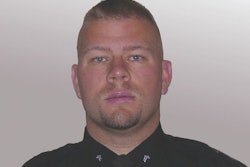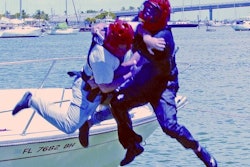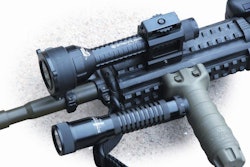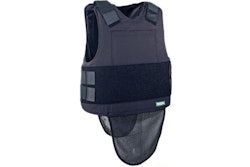One of the most stressful episodes an officer can face during his or her career is making the decision to shoot and dealing with the aftermath. Officer-involved shootings spawn a variety of questions, and many of them may be unanswerable.
• If only one officer fired, then why did he fire?
• If several officers fired, then why weren’t they trained to avoid contagion fire?
• If the suspect was hit multiple times, then why the overkill?
• If an officer failed to make an effective shot, then why’d he allow the suspect to kill innocents?
Welcome to the “damned if you do, damned if you don’t” world of officer-involved shootings.
Prepare for the Worst
An officer’s ability to deal with a shooting is directly affected by how well he prepares for one. From day one of the academy, an officer is conditioned to expect the unexpected, to learn to anticipate threats and respond to them quickly and decisively. He is tutored in a variety of weaponry, put through the rigors of physical training, and taught officer-survival tactics. Many agencies even include simulator shoot/don’t shoot scenarios in their academy training curricula.
Still, some of the more unpleasant aspects of the job can be glossed over during academy training. The need to make death notifications and the less savory aspects of “check the welfare” calls are two examples. How to deal with the aftermath of an officer-involved shooting is another.
In the real world of law enforcement, informal training in dealing with shootings is often provided during windshield conferences and BS sessions over coffee. Officers hear and see what their peers have gone through and file it away for future reference.
Sometimes valuable lessons can be learned from officers who have been there. But some of their stories can be inhibiting. Cautionary parables abound of officers who seemingly did the right thing, but were nonetheless sued, fired, and/or prosecuted. Because of this, many officers go above and beyond the call of duty to mitigate the use of deadly force, sometimes to their personal detriment. Others simply make it a point to place all of their ducks in a row and let the chips fall where they may.
No matter how prepared you are for a shooting, it’s likely that you’re not prepared for the second-guessing, the condemnation, and the accusations that may follow.
Even the most justifiable of officer-involved shootings can be controversial. Self-proclaimed community activists seemingly materialize overnight, and the news media can be counted upon to add fuel to the fire. And should an officer who’s just fought for his or her life celebrate a little natural joie de vivre for having come out on top, he or she had better hope the media isn’t there to capture the moment.
Academic Research
David Klinger is the author of “Into the Kill Zone: a Cop’s Eye View of Deadly Force” and an associate professor of criminal justice at the University of Missouri-St. Louis. He’s also a former cop who had to kill a man his first year on duty with the Los Angeles Police Department. In recent years, he has studied hundreds of officer-involved shootings. His findings have, at times, been surprising.
“Guys who you would think wouldn’t have a difficult time dealing with the shooting such as longtime SWAT officers can sometimes have difficulties in the aftermath of the shooting,” Klinger says. “Conversely, officers who are new to the job oftentimes feel quite comfortable with how they handled the shooting.”
This might be understandable. The SWAT officer is often a veteran who has done his time on patrol and elsewhere, and therefore has a solid law enforcement background. He is often more accomplished on the range and has a broader tactical background. As such, he may be more readily apt to Monday morning quarterback his decisions and actions than an officer new to the job. Having been steeped in debriefing crisis situations, learning from mistakes, and always looking to perform better in the future, it is understandable that he might ask an inordinate amount of “should I have done this?” questions.
Klinger says the data is lacking when it comes to designing a viable personality profile to determine which officers are most at risk in dealing with the aftermath of a shooting. Nevertheless, in the absence of such a profile there are other factors that can mitigate the likelihood of an officer experiencing post-traumatic stress disorder. They include:
• Support from peers
• Support through the agency’s chain of command
• Support from the organization
• Support from significant others, such as the officer’s family and friends
• The absence of litigation
Klinger’s research has shown that there are myriad concerns that an officer can have in the aftermath of a shooting. Three of the more common questions an officer asks himself include:
• Am I going to be OK in terms of administrative and legal issues?
• How is my family going to react?
• How am I going to do?
In contemplating these and other concerns, a kind of anticipatory anxiety can emerge. In the best case scenario, these questions can still emerge. Less clear-cut circumstances can only exacerbate this frame of mind. There are demonstrative differences between shooting a sniper and killing a suicidal person who has confronted an officer with a toy or nonfunctioning firearm. In such cases, officers will often express anger toward the victim. A common theme emerges: “Why did the son of a bitch force me to kill him? I didn’t sign up for this.”
Klinger reports that the most common physical responses following a shooting are trouble sleeping, fatigue, crying, and appetite loss. The most common emotional responses include recurrent thoughts, anxiety, fear of legal or administrative problems, elation, and sadness. These responses typically diminish over time, and few officers suffer long-term negative effects following a shooting.
Danger Signs
To promote the healing process, officers, their peers, and loved ones should be sensitive to signals that indicate an officer’s inability to deal with the aftermath of the shooting. While a majority of the time an officer can deal with the shooting with minimal disruption to his personal and professional lives, there are behavioral red flags to watch out for.
Out-of-character behavior is a major red flag. The hard-charger stops charging; the laid-back functionary suddenly becomes Dirty Harry. The carouser becomes a homebody; the family guy starts binge drinking with his buddies after hours. There may be increases in the use of sick time or uses of force, while productivity continues to spiral downward. Some officers will become extremely reticent to precipitate a violent confrontation.
Officer Philip Bozarth of the San Diego Police Department was a hard-charger, who in the aftermath of a 1998 shooting found himself suddenly downshifting. (For Bozarth’s story, see “Shots Fired” in the March 2006 issue of Police.)
“It didn’t last long,” Bozarth says. “But I definitely was aware of the sudden loss of the usual drive to go out and stop bad guys and make arrests.”
In Bozarth’s case, comparing notes with fellow officers and a deep and abiding faith in God helped smooth things out with relative ease. In a matter of months, he was back to feeling like himself.
Support Mechanisms
Be it faith or fellowship, Dr. Alexis Artwohl, a behavioral scientist who specializes in law enforcement, emphasizes the need for law enforcement officers to have support mechanisms in place prior to being involved in a shooting.
Citing recent studies that indicate some individuals are genetically predisposed to developing post-traumatic stress disorder, Artwohl believes that the stereotype of officers who have an inordinate degree of difficulty in dealing with the aftermath of shootings is largely a myth. She finds it analogous to the belief that officers have higher suicide rates than other occupations: The numbers simply don’t jibe.
Artwohl cites a study co-authored by Dr. Steven Sultan and Dr. Audrey Honig that focused on the Los Angeles County Sheriff’s Department. The study profiled 982 officers who were involved in 430 separate incidents, and Honig and Sultan concluded that a vast majority of the time officers did not experience an inordinate amount of psychological problems in coping with their shootings. In fact, only one officer required a medical retirement as a direct result of his being involved in a shooting.
According to Artwohl, the officers most apt to be traumatized by events are those who have not prepared themselves psychologically. “Some officers have an ‘It’s not going to happen to me’ attitude,” she says. “When it does, this mindset can be crippling. These officers are not bad people; they’re just in the wrong profession. They are less proficient in dealing with violence, whether they are the victims or perpetrators. These officers need to ask themselves some fundamental questions ahead of time: Am I mentally, spiritually, and morally capable of dealing with such a situation? If the answer to any of these questions is a ‘no,’ they need to remove themselves from a work environment wherein they can get themselves or somebody else killed.”
For many officers, stress inoculation training does for emotional pre-conditioning what SIMS training does for the tactical mindset: It provides a means for officers to evaluate their responses to specific stress-inducing events, including shootings.
Artwohl also encourages everyday debriefing practices, whether they be incident to calls, traffic stops, or pedestrian contacts. Officers need to ask themselves, “What did I learn?” and “How can I do it better?” This constant feedback allows officers to understand their capabilities and limitations even as they expand them.
[PAGEBREAK]
Professional Help
Most agencies offer counseling; some even mandate it in the aftermath of an officer-involved shooting. Artwohl encourages officers to take advantage of such counseling, but she stresses that they also need to have a clear-cut impression of the doctor’s scope of interest and responsibilities.
The primary determining factor in whether officers derive any counseling benefit is the counselor’s expertise. Officers have an intuitive sense of a counselor’s trustworthiness, confidence, and familiarity with police work.
Many of the officers that Artwohl has worked with have expressed a lack of faith in their counseling. Some 80 percent felt that the counselors were not competent; others did not believe that their sessions were strictly confidential.
Artwohl recommends that prior to answering any questions an officer pose some to the counselor.
• What is the specific purpose for the counseling?
• Is the session, in fact, a fitness for duty examination?
• What is the counselor’s relationship with the agency?
• What will the counselor report to that agency?
• What is deemed confidential, and what obligates reporting to the employing agency?
Artwohl advises that officers should get the answers to these questions in writing if possible. She adds that officers should “Keep the psychological debriefing and fitness for duty sessions separate.”
By taking such advice to heart, officers can return to work reloaded and ready to do the job, even if the job requires them to shoot again.
The Physical and Mental Effects of a Shooting
Officers involved in a shooting commonly experience some of the following physical and mental reactions.
• Trouble sleeping
• Fatigue
• Crying
• Appetite loss
• Recurrent thoughts
• Anxiety
• Fear of legal or administrative problems
• Elation
• Sadness
These responses typically diminish over time, and few officers suffer long-term negative effects following a shooting.
Question Your Counselor
Dr. Alexis Artwohl, a behavioral scientist who specializes in law enforcement issues, recommends that officers who are involved in shootings avail themselves of counseling provided by their agencies.
But she also advises that prior to answering any questions an officer should pose some questions to the counselor. Good questions to ask your counselor include:
• What is the purpose for the counseling?
• Is it, in fact, a fitness for duty examination?
• What is the counselor’s relationship with the agency?
• What will the counselor report to that agency?
• What is deemed confidential, and what obligates reporting to the employing agency?
Artwohl says officers should get the answers to these questions in writing if possible. She adds that officers should “Keep the psychological debriefing and fitness for duty sessions separate.”
How to Help a Fellow Cop Who’s Been in a Shooting
The following is reprinted with permission from “On Combat: The Psychology and Physiology of Deadly Conflict in War and in Peace” by Lt. Col. Dave Grossman and Loren W. Christensen. It was inspired by the recommendations of Dr. Alexis Artwohl, a behavioral scientist who works with law enforcement officers.
Here is how cops can best support their fellow officers after a critical incident.
Initiate contact in the form of a phone call or a note to let the person know you are concerned and available for support or help. Say, “Hey, I’m just glad you’re OK…” If the spouse answers the telephone, respect that person’s decision regarding whether to let the traumatized person talk to you.
If the person lives alone, offer to stay with him the first few days after the traumatic event. If you cannot stay, help find another friend who can.
Let the person decide how much contact he or she wants to have with you. He may be overwhelmed with phone calls, and it could take a while for him to return your call. Understand that he may want some “down time” with minimal interruptions.
Do not ask for an account of the incident, but let him know you are willing to listen to whatever he wants to talk about. People often get tired of repeating the story, and they find curiosity seekers distasteful.
Ask questions that show support and acceptance such as, “How are you doing?” and, “Is there anything I can do to help you or your family?”
Accept the person’s reaction to his event as normal for him and avoid suggesting how he should be feeling. Remember that people have a wide range of reactions to different traumatic incidents.
Apply nonjudgmental listening. Monitor your facial expressions and simply nod your head at whatever he tells you.
Do feel free to offer a brief sharing of a similar experience you had to help him feel like he is not alone and that you understand what he’s been through. This is not the time, however, to work on your own trauma issues. If your friend’s event triggers emotions in you, find someone else to talk to who can offer you support.
Do not encourage the use of alcohol. If you go out, drink decaffeinated beverages, not coffee and not alcohol. In the aftermath of trauma, it is best for people to avoid all use of alcohol for a few weeks so they can process what has happened to them with a clear head and with true feelings. For some, drinking coffee immediately after the incident may not be a good idea because it stimulates an already stimulated system.
Do not call him “killer” or “terminator” (even as a joke) or make lighthearted comments about his actions. Even your best buddy, who you often banter with and tease, may find such comments offensive.
Although you are likely to find yourself second-guessing your friend’s actions, keep your comments to yourself. Your words have a way of getting back to him and might do additional harm as he struggles to recover. Besides, your second-guesses are usually wrong anyway.
Do encourage him to take care of himself. Be supportive of his need to take time off work and encourage him to participate in debriefing procedures and professional counseling. Support him by going to the right people to talk with them about what your friend is experiencing.
Do confront him gently with his negative behavioral or emotional changes, especially if they persist longer than one month. Encourage him to seek professional help.
Do not refer to a person having psychological problems as a “mental” or other derogatory term. Stigmatizing someone might encourage him to deny his psychological injury and prevent him from seeking out the help that he needs.
Educate yourself about trauma reactions by reading about them or consulting someone who knows the topic. “On Combat,” “On Killing,” and “Deadly Force Encounters” are some of the books that will help educate you about trauma.
The person wants to return to normal as soon as possible. When he comes back to the job, do not pretend that the event didn’t happen, and do not avoid him, treat him as fragile, or otherwise drastically change your behavior toward him. Treat him like you have always treated him.
Remember, when in doubt about what to say to a fellow officer who has been involved in a shooting, just tell him, “I’m glad you’re OK.”
Dean Scoville is a patrol supervisor with the Los Angeles County Sheriff’s Department. He writes about officer-involved shootings in every issue of Police.











